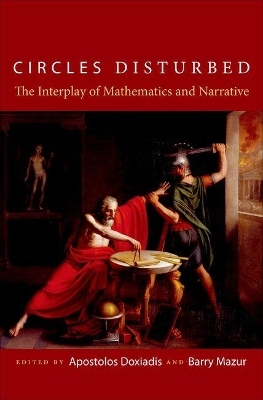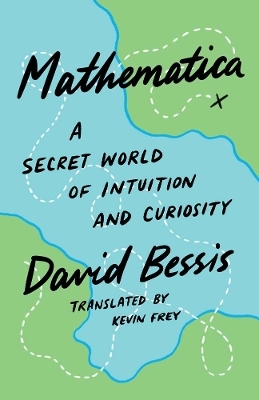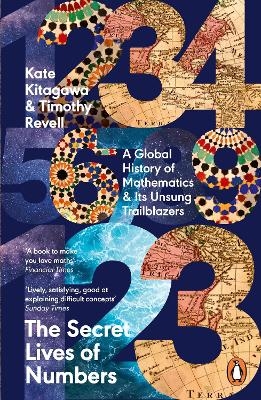
Circles Disturbed
Princeton University Press (Verlag)
978-0-691-14904-2 (ISBN)
Circles Disturbed brings together important thinkers in mathematics, history, and philosophy to explore the relationship between mathematics and narrative. The book's title recalls the last words of the great Greek mathematician Archimedes before he was slain by a Roman soldier--"Don't disturb my circles"--words that seem to refer to two radically different concerns: that of the practical person living in the concrete world of reality, and that of the theoretician lost in a world of abstraction. Stories and theorems are, in a sense, the natural languages of these two worlds--stories representing the way we act and interact, and theorems giving us pure thought, distilled from the hustle and bustle of reality. Yet, though the voices of stories and theorems seem totally different, they share profound connections and similarities.
A book unlike any other, Circles Disturbed delves into topics such as the way in which historical and biographical narratives shape our understanding of mathematics and mathematicians, the development of "myths of origins" in mathematics, the structure and importance of mathematical dreams, the role of storytelling in the formation of mathematical intuitions, the ways mathematics helps us organize the way we think about narrative structure, and much more. In addition to the editors, the contributors are Amir Alexander, David Corfield, Peter Galison, Timothy Gowers, Michael Harris, David Herman, Federica La Nave, G.E.R. Lloyd, Uri Margolin, Colin McLarty, Jan Christoph Meister, Arkady Plotnitsky, and Bernard Teissier.
Apostolos Doxiadis is a writer whose books include Uncle Petros and Goldbach's Conjecture and Logicomix. Barry Mazur is the Gerhard Gade University Professor in the Department of Mathematics at Harvard University. His books include Imagining Numbers and Arithmetic Moduli of Elliptic Curves (Princeton).
Introduction vii Chapter 1: From Voyagers to Martyrs: Toward a Storied History of Mathematics 1 By AMIR ALEXANDER Chapter 2 Structure of Crystal, Bucket of Dust 52 By PETER GALISON Chapter 3: Deductive Narrative and the Epistemological Function of Belief in Mathematics: On Bombelli and Imaginary Numbers 79 By FEDERICA LANAVE Chapater 4: Hilbert on Theology and Its Discontents: The Origin Myth of Modern Mathematics 105 By COLIN MCLARTY Chapter 5: Do Androids Prove Theorems in Their Sleep? 130 By MICHAEL HARRIS Chapter 6: Visions, Dreams, and Mathematics 183 By BARRY MAZUR Chapter 7: Vividness in Mathematics and Narrative 211 By TIMOTHY GOWERS Chapter 8: Mathematics and Narrative: Why Are Stories and Proofs Interesting? 232 By BERNARD TEISSIER Chapter 9: Narrative and the Rationality of Mathematical Practice 244 By DAVID CORFIELD Chapter 10: A Streetcar Named (among Other Things) Proof: From Storytelling to Geometry, via Poetry and Rhetoric 281 By APOSTOLOS DOXIADIS Chapter 11: Mathematics and Narrative: An Aristotelian Perspective 389 By G .E .R . LLOYD Chapter 12: Adventures of the Diagonal: Non-Euclidean Mathematics and Narrative 407 By ARADY PLOTNITSKY Chapter 13: Formal Models in Narrative Analysis 447 By DAVID HERMAN Chapter 14: Mathematics and Narrative: A Narratological Perspective 481 By URI MARGOL N Chapter 15: Tales of Contingency, Contingencies of Telling: Toward an Algorithm of Narrative Subjectivity 508 By JAN CHRISTOPH MEISTER Contributors 541 Index 545
| Erscheint lt. Verlag | 18.3.2012 |
|---|---|
| Zusatzinfo | 91 line illus. |
| Verlagsort | New Jersey |
| Sprache | englisch |
| Maße | 152 x 235 mm |
| Gewicht | 964 g |
| Themenwelt | Mathematik / Informatik ► Mathematik ► Geschichte der Mathematik |
| ISBN-10 | 0-691-14904-6 / 0691149046 |
| ISBN-13 | 978-0-691-14904-2 / 9780691149042 |
| Zustand | Neuware |
| Haben Sie eine Frage zum Produkt? |
aus dem Bereich


